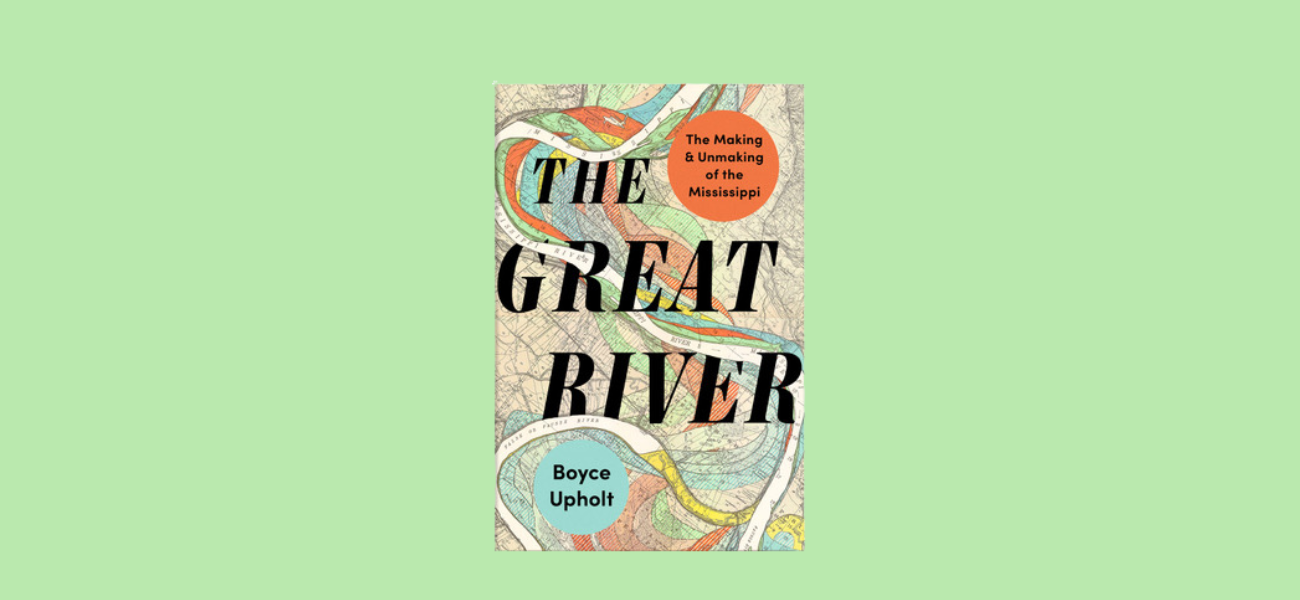
New book details the clashes and consequences of manipulating the Mississippi River
The phrase “Mighty Mississippi” is not just a bite-size piece of alliteration for school children. Covering 40% of the continental U.S. like the grip of a strong hand, the river isn’t cute. It can be dangerous. And as many thwarted attempts have shown throughout history, its force is untamable.
“It’s impossible to live along the Mississippi River and decide that nature is gentle,” writes author and New Orleans resident, Boyce Upholt, in his new book The Great River: The Making and Unmaking of the Mississippi. The book hits stands today, June 11, available for purchase here.
An award-winning journalist for National Geographic, Time and more, Upholt reverentially breezes through a steep sediment of history and data for us Mississippi-adjacent commoners, while simultaneously attacking the myriad questions surrounding the river’s chaotic developments and divergences the way a campaign trail columnist might grab hold of a juicy geopolitical bone and never let go.
|
|
Upholt’s first chance at fascination with the river was three days of camping and canoeing in 2015. But what began as a smaller ambition of compiling various river tales into an anthology of magazine-style vignettes quickly evolved.
“I realized after that trip that if I wanted to write about this, I had to go for broke and wrap my head around everything,” Upholt says of the final work that maintains a relatable, first-person narrative thread. “The idea is, ‘Let me bring you with me, so I can show you what I’m seeing and introduce you to the people who have a deep, intimate, daily connection with the river.’”

Part personal travelogue and part field reporting, The Great River’s author has driven, hiked and canoed for miles through the Mississippi watershed all the way to Baton Rouge and south through the delta to the embattled coast, interviewing caretakers and stakeholders, and weaving his search for answers and human connection with a sobering study of the many engineering projects and political ambitions that essentially mutilated the once and still wild Mississippi.
“The Mississippi River is like this secret history of our country,” Upholt says. “It was the first frontier. It drew settlers across the Appalachians. It prompted ideas of manifest destiny, and for good and bad, it has shaped our culture in so many ways.”
Attempts to control the river, Upholt details, have altered the lives and communities of all connected to its alluvial vine, be they impoverished or enslaved or those suffering the ill ecological effects of the industries that have barnacled onto these muddy banks now for generations.
“It’s not just land we’ve lost along this river,” Upholt writes. “And there’s more than land that we need to restore.”
The Great River is available from Norton & Company. Visit wwnorton.com and boyceupholt.com for more information.
|
|
|

